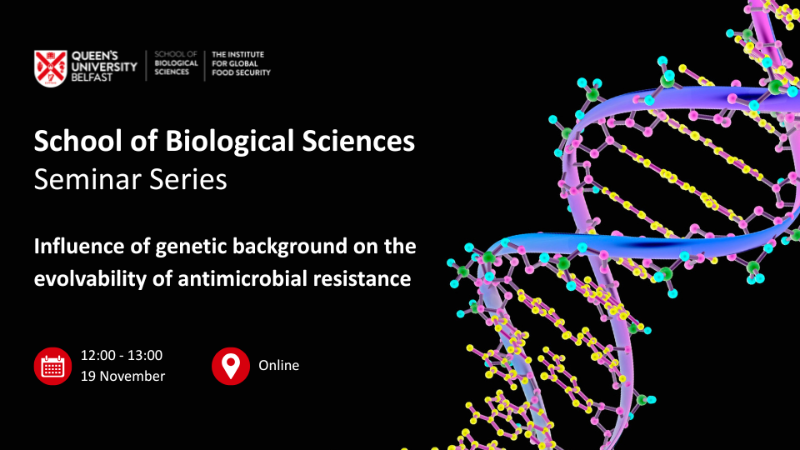We are pleased to welcome Dr Maria Rosa Domingo-Sananes, Lecturer, Nottingham Trent University, to present her latest research focusing on how genetic background influences evolvability.
- Date(s)
- November 19, 2025
- Location
- Online
- Time
- 12:00 - 13:00
Abstract: Influence of genetic background on the evolvability of antimicrobial resistance
Evolvability is the capacity of an organism to evolve and adapt to new conditions. In bacteria, exposure to antibiotics commonly selects for mutations that cause resistance. For a given antibiotic, multiple mutations can confer resistance at varying levels. Therefore, the higher the number of mutations and/or the maximum levels of antibiotic to which they confer resistance, the higher the evolvability of the bacteria to become resistant. Understanding this capacity can help predict how resistance evolves and, therefore, contribute to developing methods to slow down or reverse the rapid evolution of antimicrobial resistance in bacterial populations. We are currently investigating how genetic background influences evolvability by comparing the evolution of resistance at various levels of genetic divergence, ranging from strains differing in single mutations to those from different species. Overall, we find that genetic background affects evolvability, likely through epistasis, making predictions on further evolution difficult. However, we also observe common patterns that could be important for designing treatment strategies that minimise the risk of resistance evolution.
About the speaker
My research focuses on combining systems and evolutionary biology to understand the function, architecture and evolution of biochemical networks and genomes. Approaches include computational analysis, mathematical modelling and experimental evolution. Current interests include understanding the effects of bacterial diversity on the evolution of antibiotic resistance, the evolution of cell cycle control in eukaryotes and gene content diversity in microbes (prokaryotes and eukaryotes).
I carried out my undergraduate degree in Biology at the Universidad de Los Andes in Merida (Venezuela), followed by an MPhil in Computational Biology at the University of Cambridge. I completed my PhD (DPhil) at the University of Oxford, working on mathematical models of cell cycle control with Prof Bela Novak. I then obtained a Wellcome Trust-funded Fellowship to work on cell differentiation in trypanosomes at the Centre for Immunity, Infection and Evolution at the University of Edinburgh (with Prof Keith Matthews). Afterwards, I carried out postdoctoral research on experimental evolution in fission yeast (at the Institute for Genetics and Development in Rennes, France), and on models and analysis of prokaryote pangenomes (at the University of Nottingham with Prof James McInerney). I joined NTU as a Lecturer in Microbiology in 2021.
- Department
- School of Biological Sciences
- Add to calendar

